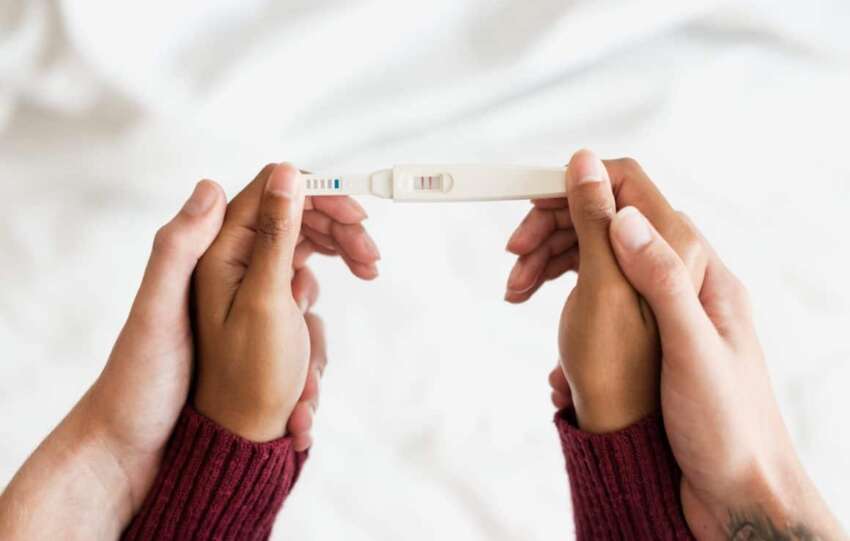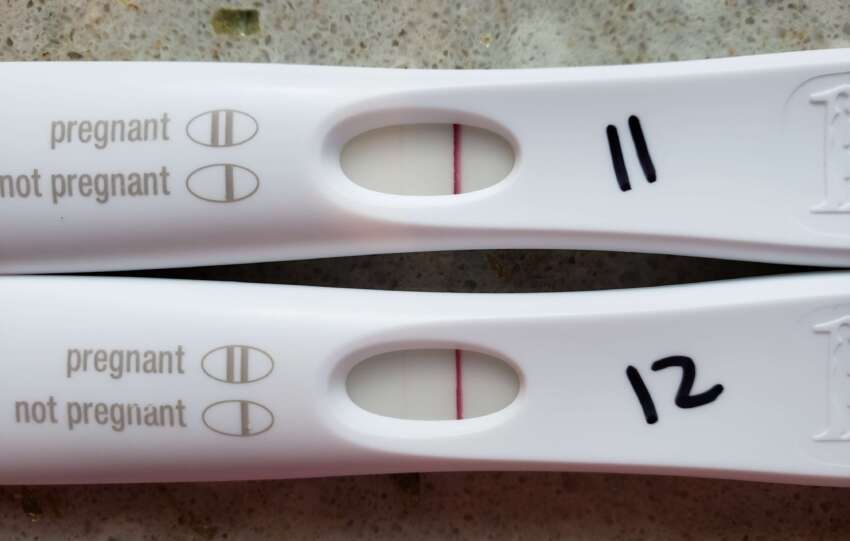Human sexuality is a complex and multifaceted aspect of our lives, and it encompasses a wide range of experiences, desires, and behaviours.
Within this vast spectrum of sexual activities, there are terms and practices that may not be immediately familiar to everyone. One such term is “creampie,” a colloquial phrase often used in the context of the pornography industry.
In this article, we will provide you with a comprehensive exploration of creampie including the banana and coconut creampie pregnancy. We will also discover the conditions under which pregnancy can occur by discussing the importance of sexual health, and considering the broader implications of this intimate act.
Creampie Pregnancy – Overview
At its core, creampie is a sexual practice characterised by a man ejaculating inside a woman’s vagina during the act of intercourse.
In other words, it refers to the act of a man ejaculating inside a woman’s vagina during sexual intercourse.
While this term is frequently encountered in adult entertainment, it raises intriguing questions about its real-life implications, including the potential for pregnancy and health risks.
Factors That Influence The Creampie Pregnancy
The outcome of creampie act is not solely determined by the act itself but rather by several crucial factors that are discussed below;
• Fertility
The foundation of potential pregnancy during creampie lies in the woman’s fertility. To conceive the pregnancy, a woman must be in her fertile window of the menstrual cycle, which is the period when an egg is available for fertilisation.
• Sperm Viability
The sperm deposited during creampie must be viable and capable of fertilising an egg. Sperm can survive in the female reproductive tract for several days, underscoring the importance of timing.
• Timing
The timing of creampie is paramount. For conception to take place, the act must coincide with the woman’s ovulation, which can vary significantly among individuals and corresponds to the release of an egg from the ovary.
Health Considerations and Responsible Practices For Creampie Pregnancy
Apart from the potential for pregnancy, another significant concern associated with unprotected intercourse, including coconut and banana creampie pregnancy, is the risk of sexually transmitted infections (STIs).
During pregnancy, it is important to be mindful of your diet and make choices that ensure both your health and the health of your developing baby.
When it comes to cream pies, there are some considerations to keep in your mind during pregnancy;
Coconut Creampie
You may ask yourself a question “Is Coconut Creampie Safe During Pregnancy”? The answer to this question is yes.
Coconut creampie is generally safe to during pregnancy, but there are a few things to consider:
• Check the quality and freshness of coconut creampie to avoid any potential foodborne or other illnesses.
• Ensure that the coconut used is pasteurised and not made from raw eggs, as raw eggs can carry a risk of salmonella.
Banana Creampie
The other question that might comes into your mind is about banana cream pie or “Is Banana Creampie Safe Drinking Pregnancy”?
Well, banana creampie is also considered safe during pregnancy. However, here is given some instructions that you should follow;
• Be cautious about the quality and freshness of ingredients.
• Avoid any recipes that use raw eggs.
Boston Cream Pie
The last one is Boston creampie. You may not be very familiar with this type of creampie and therefore the question “Is Boston Creampie Safe During Pregnancy” can rise into your mind.
It is typically safe to take Boston creampie during pregnancy, but it is important to be selective in your choices such as;
• Ensure that the custard filling is cooked thoroughly and does not contain raw eggs.
• If you are purchasing it from a bakery or restaurant, make sure it is from a reputable source with high food safety standards.
In general, it is advisable to consult with your healthcare provider or a registered dietitian during pregnancy to get personalised dietary recommendations.
They can provide guidance on specific creampie choices and portion sizes to ensure you and your baby’s nutritional needs are met.
Remember that moderation is key, and enjoying these desserts occasionally as part of a balanced diet is generally considered safe during pregnancy.
However, always prioritise the safety, avoid raw or undercooked ingredients, and opt for well-known and pasteurised versions when in doubt.
Besides, the importance of sexual health and responsible practices given below should also be noticed;
Contraception
Barrier methods such as condoms provide effective protection against both pregnancy and STIs. Plus, employing these methods can significantly mitigate the risks associated with unprotected intercourse.
STIs
Unprotected intercourse increases the risk of contracting STIs. Employing condoms and engaging in open discussions with your partner about sexual health can help reduce this risk.
Communication
In the context of a committed and monogamous relationship, where both partners have been tested for STIs and are using contraception to prevent pregnancy, the physical act of creampie may not necessarily be harmful.
However, clear communication about intentions, boundaries, and sexual health is essential.
Conclusion
Creampie, a term often associated with the pornography industry, represents a specific sexual act. Understanding the conditions under which pregnancy can occur during this act is essential for individuals who engage in unprotected intercourse.
Moreover, prioritising sexual health, including the prevention of STIs and responsible contraception, should always be a fundamental aspect of any sexual relationship.





